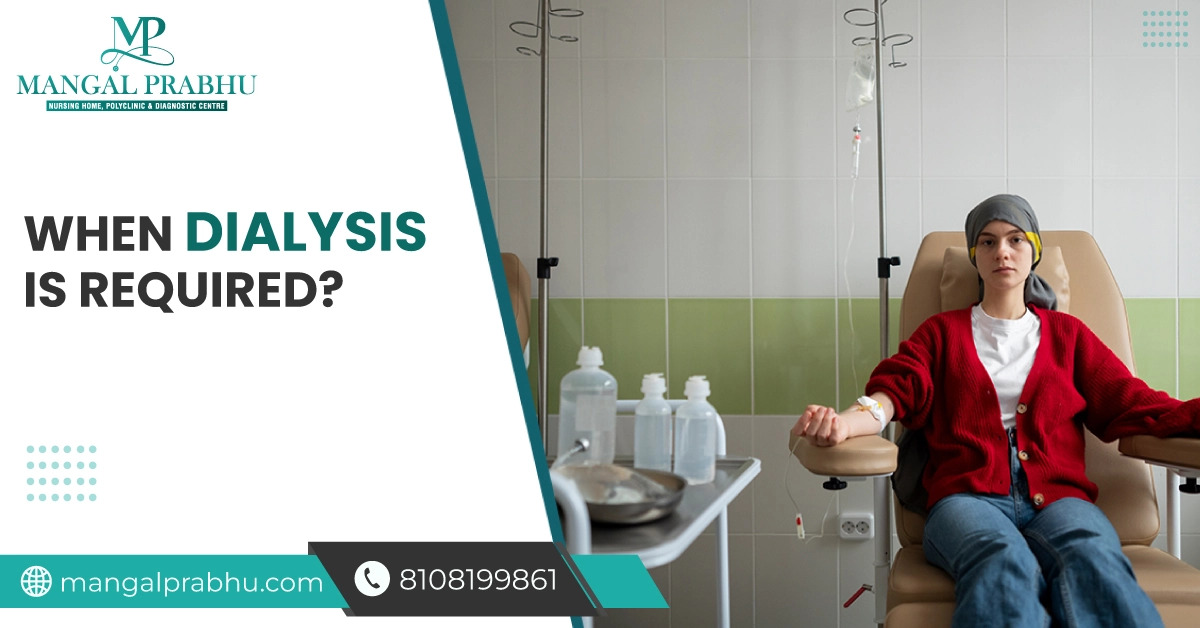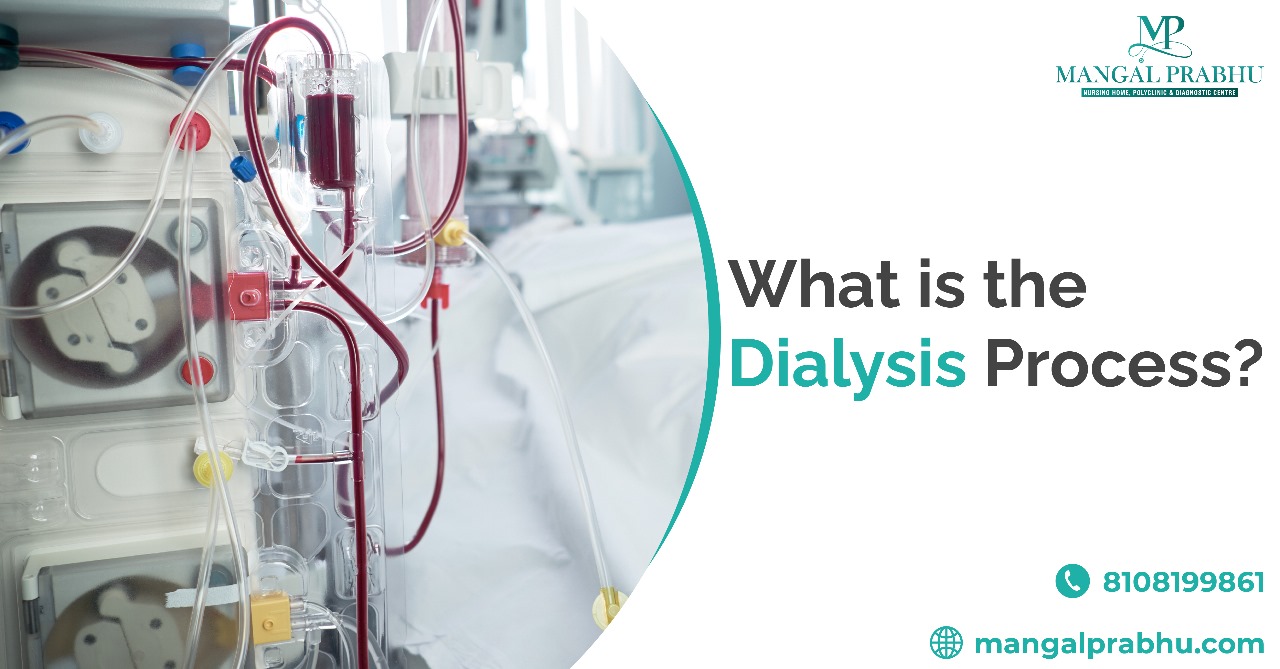
When is Dialysis Required?
Your kidneys are responsible for removing waste from your bloodstream and the extra fluid through urine. This bean-shaped organ also maintains the level of potassium, calcium, and other vital minerals in your body. Kidney failure can lead to the accumulation of waste and extra fluid in your bloodstream. It’s important to consult a Nephrologist in Navi Mumbai to get a dialysis—a procedure that performs the function of your kidneys. Let’s see when it’s needed.
Symptoms of Kidney Failure
Here’s what happens if one or both of your kidneys stop working.
- Nausea and vomiting
- Feeling the urge to urinate frequently
- A metallic taste in the mouth
- Lost appetite
- Edema
- Muscle cramps
- Fatigue
- Dry skin
The symptoms are worse in people with high levels of waste substances in their blood.
When is Dialysis Required?
If your kidney is unable to clear toxins from your blood or remove excess fluid from your body through urine, you might need dialysis. The procedure is mainly recommended when only 10-15 percent of your kidney function is left.
If your kidneys stop working, you will notice swelling around the ankles, nausea, vomiting, and extreme fatigue. However, it’s possible that the toxic substances build up gradually in your bloodstream without causing these symptoms. So, it’s best to talk to your doctor to know if you need dialysis treatment in Navi Mumbai.
Types of Dialysis
Dialysis is categorized into two types:
i) Hemodialysis:
This procedure involves removing toxins from your bloodstream through an artificial kidney. The blood from your body passes through this machine to eliminate waste, and the purified blood is returned to your body. The procedure takes 4-5 hours and is performed in an outpatient setting in a dialysis center.
ii) Peritoneal Dialysis:
In peritoneal dialysis, a catheter is inserted into your abdomen and used to pass the dialysis solution (which consists of a special formula that removes toxic elements from your blood) into the peritoneum. This solution removes excess fluid and waste from the blood within your body. The waste must be drained after the procedure.
Peritoneal dialysis is a more convenient option for patients who can’t schedule regular trips to the hospital, but it comes with a few complications, like infection and hernia.
Life After Dialysis
Life after dialysis isn’t different from normal life. Your healthcare provider will give you instructions on how to keep your dialysis solution and bags clean. You can travel, work, and perform all routine tasks as usual. However, if you are traveling, you may need to arrange the dialysis sessions at the local dialysis center in your destination address. Those undergoing peritoneal dialysis can carry portable dialysis machines, solutions, and drainage bags with them.
Conclusion
A person can survive with one kidney, but if both of them stop working, dialysis or a kidney transplant is necessary. Kidney failure can occur suddenly or gradually. People with diabetes, hypertension, and other kidney diseases are at an increased risk of kidney failure. If you are diagnosed with kidney failure, dialysis can help you live a healthier and normal life.

What is the Dialysis Process?
Those with failed kidneys can either get a kidney transplant or consider dialysis. The latter is an ongoing procedure, which does the work of your kidneys by filtering waste and excess liquid from your blood. The procedure is done at a dialysis center in Navi Mumbai and is considered an effective way to eliminate waste that might otherwise accumulate in your bloodstream. Patients whose 90% of the kidneys have stopped functioning are good candidates for dialysis. Let’s see the procedure, how it works, its types, and more.
Types of Dialysis
There are three main types of dialysis and each works in different ways, although the purpose of each is the same.
Hemodialysis
In hemodialysis, an artificial kidney filters your blood and returns it to your body after removing all the waste and fluid. The procedure is done 3 times a week and is usually a 3-4 hour procedure, which can be done at home or the dialysis center. Before you start dialysis, your healthcare provider will perform a small surgery to enlarge your veins so that it’s easier to insert a catheter into the veins, as well as, improve the blood flow in and out of your body.
Peritoneal Dialysis
Peritoneal dialysis filters waste from your blood through the tiny blood vessels in your abdominal lining. A special dialysis solution, containing minerals and glucose, is used to conduct kidney dialysis. The solution stays in your peritoneum overnight and the waste is collected in the dialysis solution. It can be drained into an empty bag within 60 minutes. The procedure must, however, be performed at least 4 times a day.
Benefits of Dialysis
- The procedure maintains an adequate level of calcium, potassium, and other minerals in your body.
- It’s quite effective in treating kidney failure and can do most of the job of a healthy kidney.
- Dialysis can be done at home while traveling, and when you are asleep. It’s convenient.
Risks and Complications of Dialysis
The most common risk of dialysis is the infection in the graft, which is implanted into your abdomen in peritoneal dialysis. Patients can contract peritonitis from the catheter. There’s also a risk of skin infection due to the catheter. People who choose peritoneal dialysis report excess fatigue due to the lack of protein and other nutrients. There’s also a risk of a hernia around the abdominal area.
Life After Dialysis
Life with dialysis is pretty normal. You can travel, eat, sleep, raise families, and work as usual as long as you get the dialysis treatment as and when required. You can consider self-dialysis by getting the dialysis machine and solution at home. It can also be done when you are asleep. However, dialysis is mostly seen as a temporary solution to replace your kidney function with artificial kidneys. You might eventually need to undergo a kidney transplant to ensure normal and healthy kidney function.
That was all about kidney dialysis and its types. See a kidney dialysis specialist in Navi Mumbai to learn more about the procedure and the risk factors.
